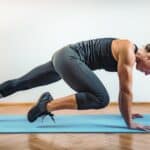This article explores the debate around whether it’s better to work out on a full or empty stomach. One paragraph may convince you that you need food and nutrients before exercising, while the next might make you think twice. I tried to gather as much research as I could, but it’s clear that more studies are needed.
Some research shows that working out on an empty stomach won’t hurt you—in fact, it may actually help, depending on your goals. Everyone is different, so it really depends on the individual. One study showed that exercising after fasting can lead to burning significantly more fat and calories. Exercising before eating is often great for young, healthy, athletic individuals. This is because those who aren’t in that category—older adults, people with health conditions, or those who are not regularly active—may be at higher risk of feeling light-headed, irritable, or lethargic due to low blood sugar and a lack of nutrients. For most people, eating a small amount of food before a workout can help you perform better and feel more energized. This holds true across age groups and especially for those who are not physically active every day.
For older adults over 55, it’s particularly important to eat something before exercising—especially first thing in the morning. During the night, the body makes physiological adjustments to maintain blood-glucose levels, often breaking itself down to do so. If you work out in the morning without eating, your body may continue in this breakdown state, which can be unhealthy and increase the risk of injury.
That said, I believe this choice ultimately depends on the individual. Personally, I cannot work out on a full stomach. My workouts are much more intense if I haven’t eaten. I stay hydrated, but I don’t eat anything beforehand. Keep in mind, I’m over 50—so according to some studies, I should eat before exercising. However, I’ve built a lot of cardio endurance over the years, and my experience reflects how personal this issue is. Studies offer general recommendations, but only you truly know your own body and fitness level.
Opinions differ when it comes to exercising on a full versus empty stomach. Some studies have found no weight-loss advantage to fasting compared to traditional diets. Other research even suggests that skipping breakfast could be harmful to your health.
As mentioned earlier, the hype around fasting before exercise might not apply to everyone. Many of the advocates for this practice—especially on blogs and lifestyle sites—tend to be very young, fit individuals or athletes in top physical shape. They’re not just exercising on an empty stomach; their entire lifestyle is dialed in. They eat high-quality foods, follow strict routines, and maintain excellent overall health. When the average person attempts to work out without eating, they must be mindful of potential nutritional deficiencies or unhealthy changes in body composition.
I believe much more research is needed on intermittent fasting and exercise—especially for people over 50—before we can say this approach is safe or effective for everyone. Every person and body type is different. In my opinion, eating a full meal before exercising is not beneficial. But for some, having a little something beforehand can make a big difference. For those who aren’t athletes, fueling up with a small snack may actually help them burn more fat during their workouts.
Try a pre-exercise snack that combines protein and carbohydrates—something like half a banana with a spoonful of peanut butter, a hard-boiled egg, or a protein shake. You don’t want to fill up; you just want to give your body a burst of energy to power your training session.
To maximize fat burning and take advantage of your elevated post-exercise metabolism, drink water after your workout but wait about 60 to 90 minutes before eating a full meal.
All of this is general advice, based on the research and reading I’ve done. I want to be clear—I’m not promoting exercising on an empty stomach. I truly believe this choice is highly individual and should be based on your personal fitness level, lifestyle, and health needs.










